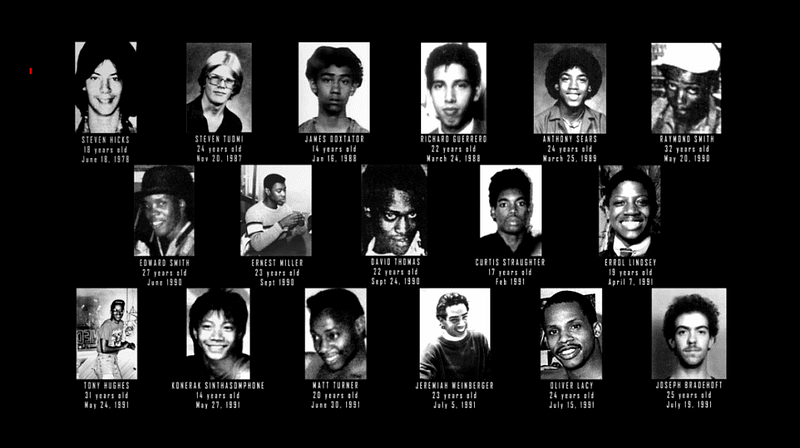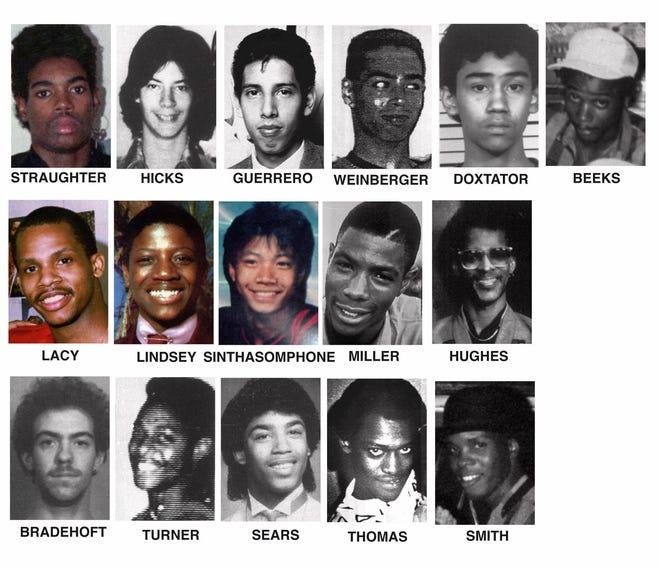Deviant Attraction: The Unbecoming Romanticisation of Serial Killers
“My consuming lust was to experience their bodies. I viewed them as objects, as strangers. It is hard for me to believe a human being could…

“My consuming lust was to experience their bodies. I viewed them as objects, as strangers. It is hard for me to believe a human being could have done what I’ve done.” -Jeffrey Dahmer
Everyone knows the story and everyone knows his name: the infamous serial killer who created “living zombies” by injecting hydrochloric acid or boiling water into the heads of his victims — all of whom were men. He is a man of notoriety, known for a lot of things such as necrophilia, rape, cannibalism, dismemberment of his victims, and murder, and it all started with the sound of a bone that dropped into a bucket.
The case of Jeffrey Dahmer has captured the worldwide interest and curiosity of many people. Like Dahmer’s morbid fascination with preserving his victim’s skulls, we tend to be intrigued by what goes on in the minds of serial killers — so much so that a great deal of these criminals had become household names such as Ted Bundy, Richard Ramirez, Charles Manson, and among others.
Media

The rise of true crime documentaries, podcasts, and film adaptations have gratified our curiosity on the intricacies of these cases. They depict the childhood of these killers, their life before crime, and where their abominable behaviours stemmed from. Plus, they include what everyone really wants to know: the details of these gruesome murders and pictures or reenactments of the grisly crimes. Despite the main purpose of such media being to inform and garner sympathy towards the victims of these crimes, there are those viewers who end up idolising and romanticising these monsters In some cases, these admirers end up falling in love with them and even go so far as sending not only love letters to them but also marriage proposals and nude pictures.
The media plays a big role in the romanticisation of these killers by casting conventionally attractive actors, such as Zac Efron who plays Ted Bundy in ‘Extremely Wicked’, Ross Lynch as Jeffrey Dahmer in ‘My Friend Dahmer’, and Evan Peters as Jeffrey Dahmer in ‘Monster: The Jeffrey Dahmer Story’.
Society’s macabre fixation with these murderers is contributed by the production of a plethora of programs that humanise and glorify these murderers. It’s vital to keep in mind when consuming these types of media that these victims are real individuals, and not based on fiction. But the underlying question is: where do these fantasies and delusions really manifest from?
Bonnie and Clyde Syndrome
This romanticisation is called Hybristophilia, also known as the Bonnie and Clyde syndrome. This pertains to the physical attraction or sexual interest towards individuals who committed crimes and it often occurs in women as opposed to men.
Looking from a biological perspective, psychologists stated that females usually prefer an aggressive counterpart and seek comfort in very masculine males. According to Narcissism 101, “Women equate forceful and aggressive men, who are also charming, to an ideal masculinity based on power and roughness. In an interesting test, women were shown images of strong-looking and boyish-looking men; the researchers found that women’s preferences were cyclic. It depended on their reproductive cycle as to which images they preferred. In Co-dependence women and men are willing victims; they are attracted to dangerous men and dangerous situations. They want stability and safety”.
However, it should be noted that these women tend to have a history of abuse and have gone through violent and abusive relationships. In addition to that, women who are attracted to these types of men do not fully know who they are in love with and what they are getting themselves into. These killers whom hybristophiliacs are attracted to are intelligent, charismatic, and manipulative- essentially making these women their prey. In such cases, the “I can change him” mindset prevails.
The Real Victims
It is harmful to glorify these killers and the growing admiration towards them is insensitive towards the victims of the crimes. This deviant attraction towards them further enforces the idea that these killers are deserving of sympathy and admiration. On top of that, why is it that people know the name of the killers of these murder cases but cannot name a single victim?
The glorification of serial killers disregards the victims’ suffering and pain. Not only that, the families and loved ones of these victims are reliving the trauma brought upon by the different programs and content that give criminals’ stories precedence over those of victims. We should remember the lives of the victims, rather than feeling sympathy for the murderers and romanticising their character.
Victims of Ted Bundy

Victims of Jeffrey Dahmer

The glorification of serial killers disregards the victims’ suffering and pain. Not only that, the families and loved ones of these victims are reliving the trauma brought upon by the different programs and content that give criminals’ stories precedence over those of victims. We should remember the lives of the victims, rather than feeling sympathy for the murderers and romanticising their character.
[Written By: chkh. Edited by: Teoh Jin]

